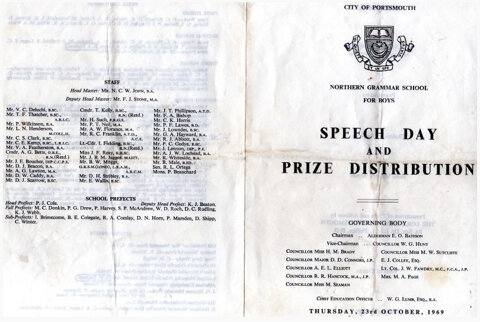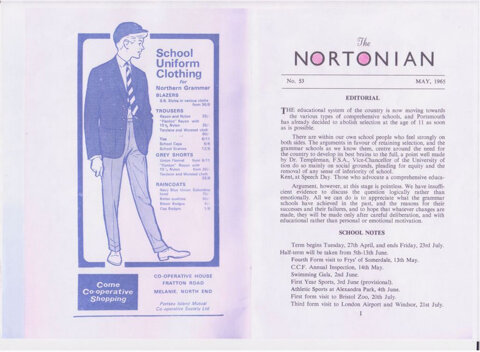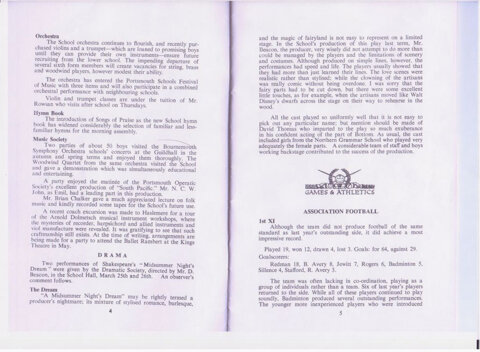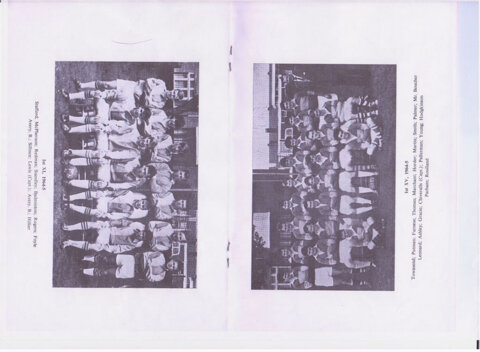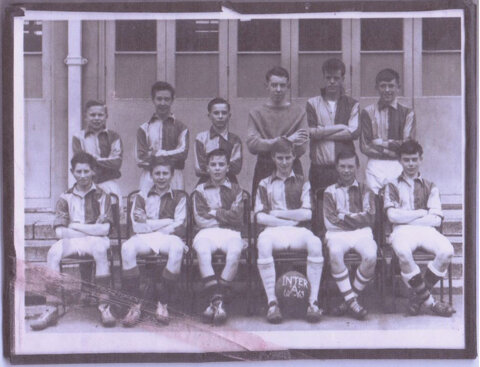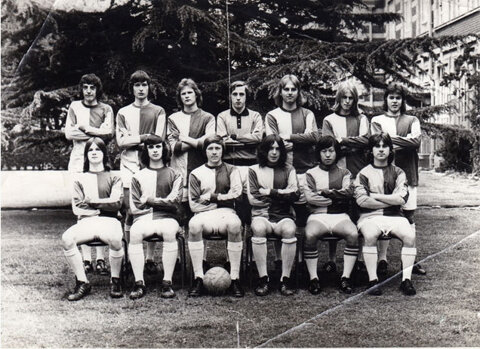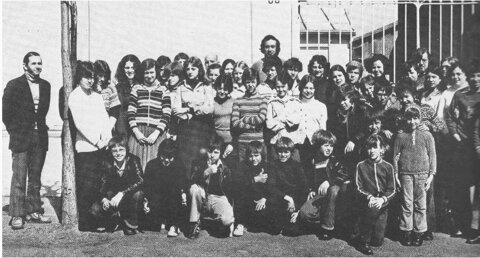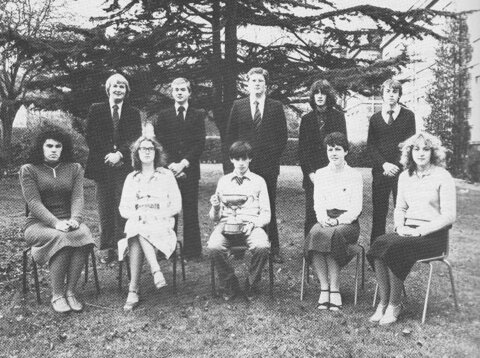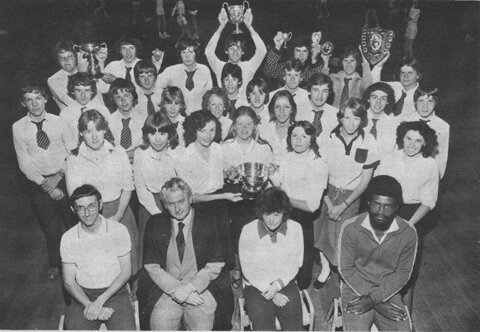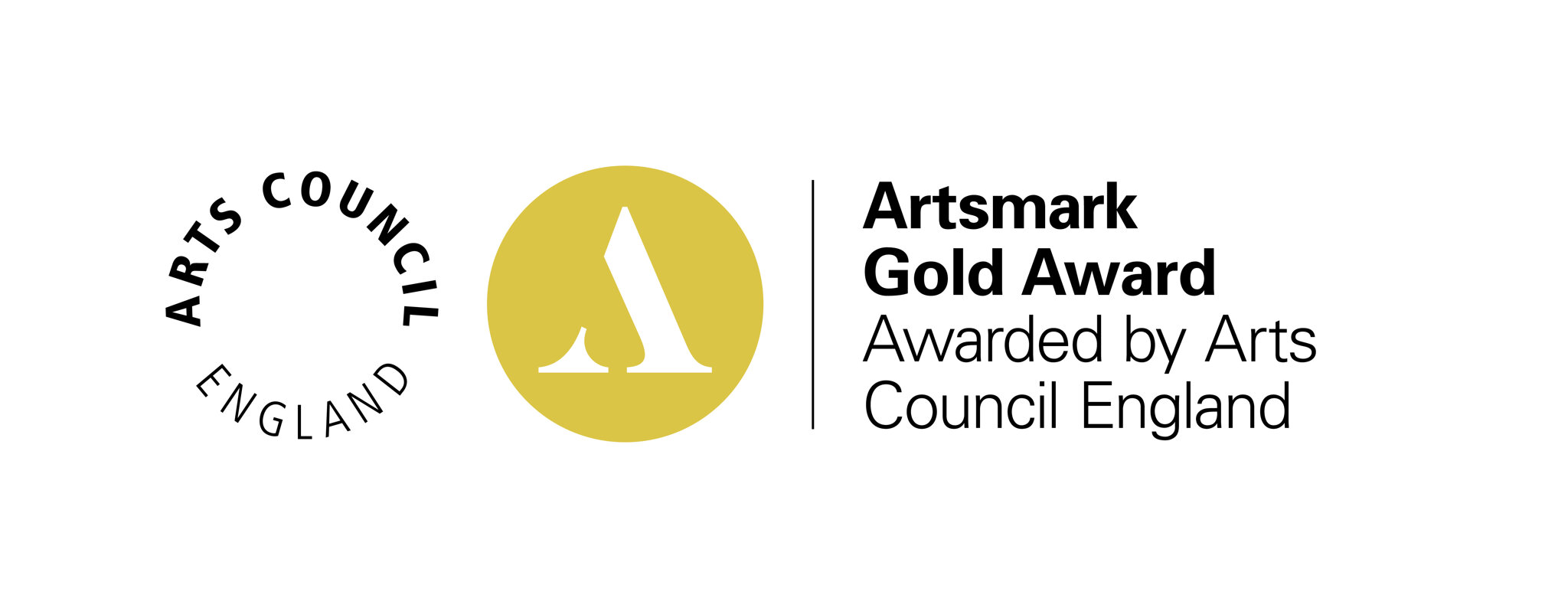Our School
School Values
‘Believe. Achieve. Succeed.’
We believe that students should have the ability to succeed in education and the wider world regardless of their background or ability.
The 6 R’s
Our learning across all subjects is underpinned by The 6 R’s. These are the values, skills and qualities that will help our pupils to succeed as they move through the school. These values have been taught to our Primary school under the title Learning Superpowers. We continue to celebrate our pupil's development of these values, skills and qualities into the Senior School. In particular, we focus on how developing these qualities helps to aid independent learning for life and exam success.
We want our children to be:
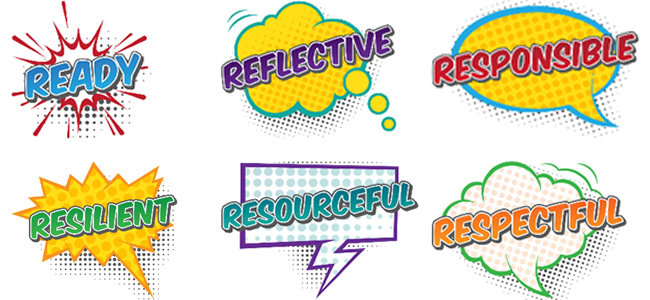
Spiritual, Moral, Social and Cultural Development (SMSC)
All staff are responsible for teaching SMSC. Here are some examples of how teachers may incorporate SMSC into pupils lessons:
Spiritual Development
* How beliefs inform their perspective on life and interest in and respect for different people’s feelings and values;
* Sense of enjoyment and fascination in learning about themselves and others;
* Use of imagination and creativity in their learning e.g. use of role play, presentations;
* Being prepared to reflect on their experiences e.g. self- assessment
Moral Development
* Able to recognise the difference between right and wrong;
* Understand the consequences of their actions;
* Interest in investigating and giving reasoned views about moral and ethical issues.
Social Development
* Using a range of social skills in a variety of contexts including working with pupils from different backgrounds to their own e.g. organisation of groups, seating plans;
* Willing to participate in a variety of social settings, cooperating well with others and resolving conflict successfully e.g. group work;
* Interest in and understanding of the way communities and societies work at a variety of levels e.g. learning about another culture, religious beliefs and the way they affect how people live.
Cultural Development
* Understand the wide range of cultural issues that have shaped their heritage;
* Willing to participate in a variety of opportunities e.g. artistic, sporting, mathematical, technological, scientific and cultural e.g. extra-curricular activities, joining in different activities in lessons;
* Interested in exploring, understanding and showing respect for cultural diversity. This is shown in attitudes to different groups in society at a variety of levels e.g. how they mix in social time.
British Values
As well as opportunities to develop SMSC in lessons, pupils also extensively experience the key British values of ‘democracy’, ‘individual liberty, ‘mutual respect’, ‘tolerance of others faiths and beliefs and the ‘rule of law’ as part of our pastoral programme (assemblies, tutor programme and themes of the week).
As part of these sessions, pupils are given an opportunity to learn how these values shape our society and to discuss and reflect upon how they contribute to a positive community for all.
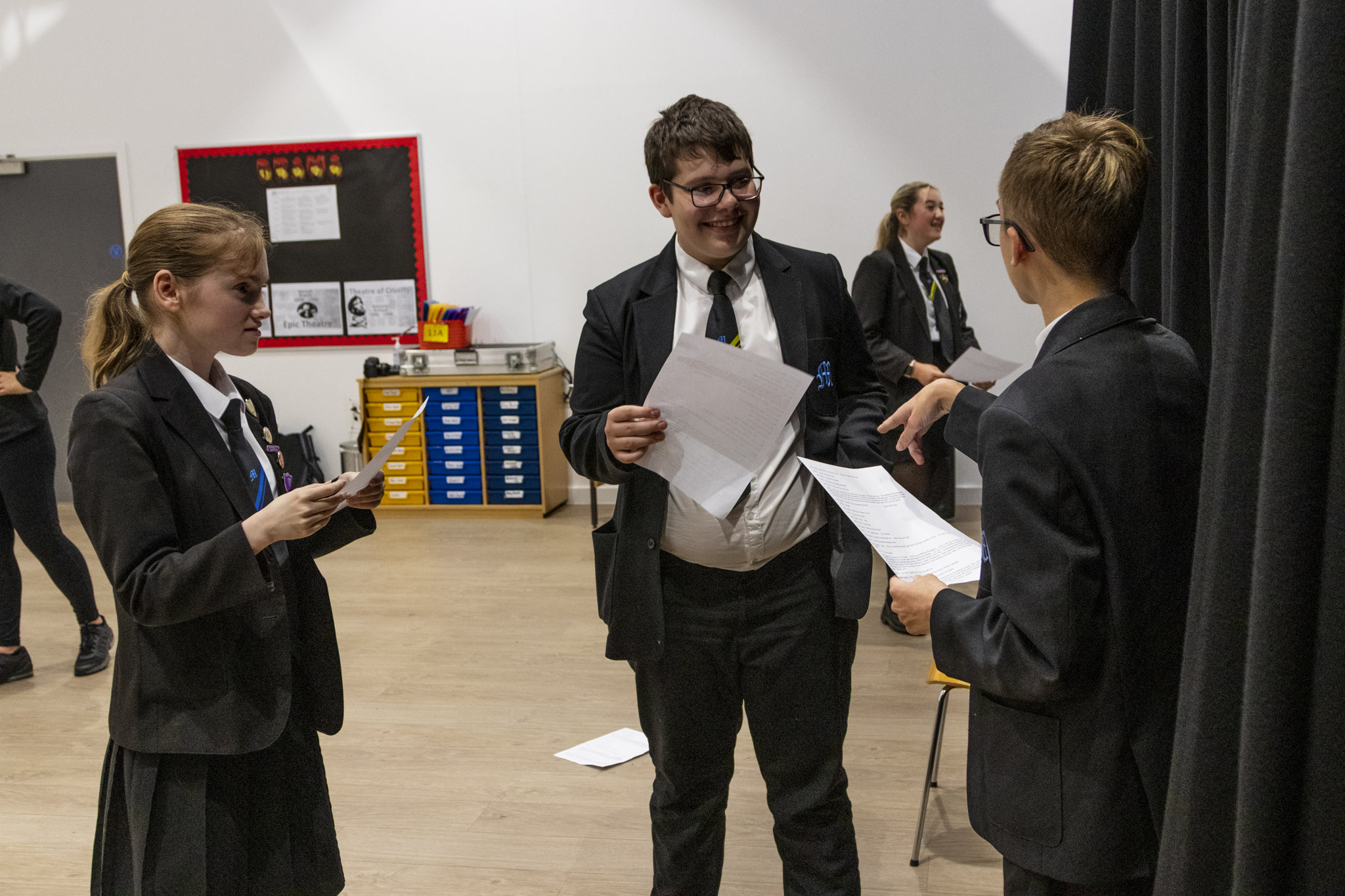
Artsmark Gold Status
Wow! Mayfield School has achieved Artsmark Gold Status! This award celebrates everything we do as a school community to promote the arts within the curriculum and all the incredible extra-curricular opportunities we offer our pupils. This is a huge achievement and something we have been working very hard to achieve for the last two years. We would like to say a huge thank you and congratulations to all the staff and pupils who have contributed to this, and we look forward to continuing on our Artsmark journey over the next two years. Watch this space for more exciting opportunities and events coming.
We believe that our school motto, ‘Believe. Achieve. Succeed.’, gives everyone within our school community a sense of direction, identity, and purpose. It helps us all:
To believe in ourselves, our own abilities, in other people and the world around us.
To achieve our full potential by successfully reaching our goals through effort, skill and confidence.
To succeed in becoming the person we want to be.
Childhood should be a happy, investigative and enquiring time where there are no limits to curiosity and there is a thirst for new experiences and knowledge. Children from all backgrounds should have the same opportunities and therefore we provide a rich and varied curriculum with practical experiences across and within subjects and ages. Community involvement is an essential part of our curriculum as we celebrate local traditions, learning new skills to enable the children to take an active role in events throughout the year. Mayfield School provides opportunities for children to develop as independent, confident learners who have high aspirations and who know how to make a positive contribution to their community and the wider society. Our vision is for every child at Mayfield to be valued, supported and inspired within a family ethos that raises aspirations and makes a real difference to the life chances of our young people. We do this by creating an inclusive community, respecting and celebrating the cultural diversity of the school, the local community, and the wider world. Opportunities are given for children to gain a sense of pride for being a good citizen in the community in which they live through the embedding of the core values of being:
Respectful, Resourceful, Responsible, Reflective, Resilient, Ready
The educational experience is underpinned by the school’s Mission Statement:
All stakeholders, together, will create and build an environment of respect and inclusion where everyone is valued, supported, inspired and future ready. We will achieve this by providing our children with:
-
Outstanding academic standards, with a particular focus on acquiring a foreign language, developing competency as a musician and performer, as well as encouraging excellence in sport.
-
Outstanding pastoral care based on nurturing each individual's self-esteem and ambition to realise their full potential; and
-
Outstanding opportunities to develop the 6Rs (Resilience, Responsibility, Respect, Resourcefulness, Readiness and Reflectiveness) and ‘character’ experiences to succeed both in school and also prepare them for being a well-equipped member of society and ready for the world of work.
At Mayfield, the curriculum is designed to: recognise children’s prior learning, provide first-hand learning experiences, allow the children to develop interpersonal skills, build resilience and become creative, critical thinkers.
Every child is recognised as a unique individual. We celebrate and welcome differences within our school community. The ability to learn is underpinned by the teaching of skills, knowledge, concepts, vocabulary and values. An emphasis is placed on the development of a rich and progressive vocabulary which empowers children to articulate their thoughts and become confident to investigate and seek information beyond the school perimeter.
Reading and communication skills are embedded within the curriculum. We provide enhancement opportunities through themed weeks, trips, inviting visitors in, residentials, and competitions and participating in award schemes such as the Duke of Edinburgh Award.
We use our School Values to promote positive attitudes to learning, and developing a growth mind-set for all. These reflect the skills and attitudes needed to promote responsibility for learning and future success. The children will be able to explain about the need to be Respectful, Resourceful, Responsible, Reflective, Resilient and Ready, and how these help them as life-long learners. They will:
-
Have developed a strong sense of identity within the school and belonging to the community
-
Have the confidence and skills to make decisions
-
Have aspirations to achieve with a growth mind-set
-
Have the skills to self-evaluate, make connections, and become lifelong learners
-
Be able to keep themselves safe
-
Be able to transfer to junior school, secondary school, further education and work as an independent learner
-
Continue to contribute to the wider society and be a responsible citizen who
is tolerant and respectful of others’ values and beliefs
Children leave Mayfield School with a sense of belonging to a tightly-knit community that was created by our family ethos. They have the confidence, aspirations, they understand their choices in life and the difference they can make as a global citizen.
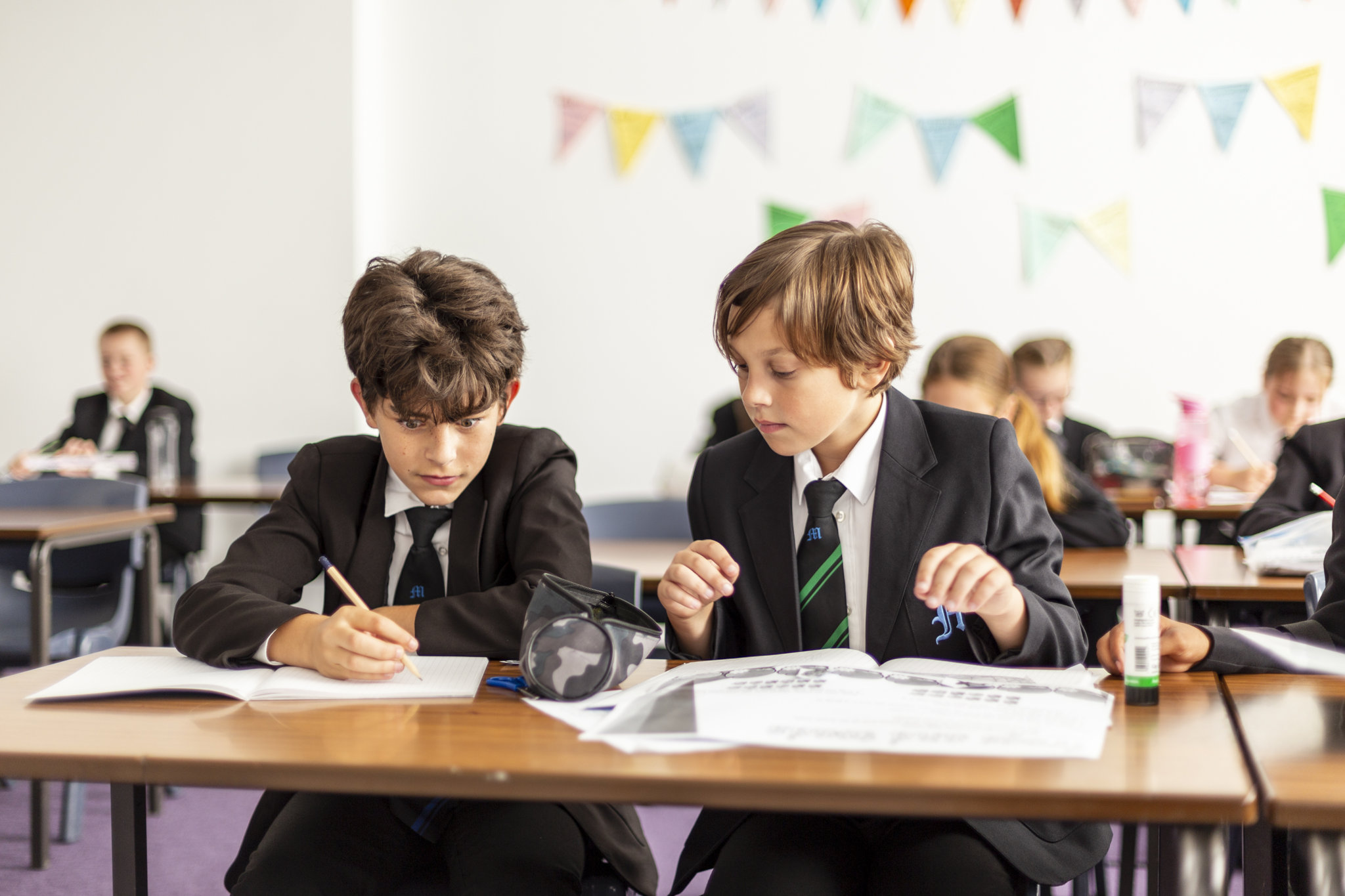
Primary
|
Activity |
Time |
|
Start of School Day |
8.30am - 8:45am (staggered start) |
|
Lunch |
Year R - 12:10 – 12:55pm Years 1, 2 and 3 - 12.15-1.00pm Years 4, 5 and 6 - 12.30-1.15pm |
|
End of School Day |
3.30pm |
|
Start of Extra Curricular clubs |
3.30pm |
|
Parents and carers collect from Extra Curricular clubs |
4.30pm |
|
Wrap around care options (paid): |
7.45 am – 8:30am - Breakfast Club 3:30pm – 4:30pm – Teatime Club (no food) 3:30pm-6pm – Early Teatime Club (food) 4:30pm- 6-pm – Teatime Club (food) |
Senior
|
Time |
Activity |
|
8.00-8:30am |
Gates open on Kensington Road |
|
8.35am-8:55am |
Tutor |
|
8.55am-10:05am |
Lesson 1 |
|
10:05am-11:15am |
Lesson 2 |
|
11:15am-11.40am |
Destination Reader (7 and 8)/CPR (9,10 and 11)/Break for Endeavour and Intrepid |
|
11.40am-12.05pm |
Break for Discovery and Victory/ Destination Reader (7 and 8)/CPR (9,10 and 11) |
|
12.05pm-1.15pm |
Lesson 3 |
|
1.15pm-1:50pm |
Lunch |
|
1:50pm-3:00pm |
Lesson 4 |
|
3pm-4pm |
Extra-Curricular |
Diversity
- Young Stonewall – National organisation supporting members of the LGBTQ+ community, including details youth programmes and ways to get involved, as well as a: What's in My Area? tool that can be used for people to find local groups and organisations
- Mermaids is for young people and their parents. They work to raise awareness about gender nonconformity in children and young people amongst professionals and the general public.
- Gendered Intelligence (GI) specialise in supporting young trans people aged 8-25.

Governing Body
Becoming a Governor at Mayfield School
Who are Governors?
Governors are Britain’s biggest volunteer group, with over 350,000 in schools across the country. They come from all walks of life and bring a range of skills to governing bodies. You don’t have to be an education expert to be a governor, but you do have to be passionate about education. Governors are people who:
- Are willing to work in a team;
- Offer an external perspective to the school;
- Have a desire to help the community;
- Are not afraid to challenge assumptions and express their opinion.
What do Governors do?
The school governing body is responsible for improving the school. They do this by:
- Supporting the Headteacher and the staff;
- Challenging the Headteacher and the staff;
- Setting the direction of the school;
- Promoting high standards;
- Checking on school performance;
- Using the school’s budget effectively.
They support the school’s staff, enabling them to provide the best possible standards of education which helps children throughout the school be able to realise their aspirations. An effective governing body is a source of tremendous strength for the school and helps its leaders cope with major issues and handle change.
Can I be a Governor?
Anyone over 18 can apply to be a governor and you will be required to submit to a Criminal Records Bureau (CRB) check. The most important quality you need is a desire to provide children with the best possible standard of education to give them the chance to realise their dreams. Everyone has his or her own unique perspective to bring, and all your experience will be of benefit. Generally speaking governors are not highly qualified individuals, they are just regular people with a passion for education.
How much time will it take up?
Most of the governors’ work is done through meetings. You will normally be expected to attend between 2 and 4 per term, which will mean you’ll go to a meeting of the whole Governing Body and then a Committee meeting too. There is an expectation that you will read all the paperwork for the meetings in advance, and also attend training regularly, which does add to the time it takes. On joining the Governing Body you will be provided with a detailed induction file, training will be provided and an experienced Governor will mentor and guide you through the early days.
Governors don't get paid, so what do I get from it?
Being a school governor is a unique chance to increase your own skills. You will learn about lots of different areas of school life, which can also be applied in other business environments. You’ll get first hand experience in HR, strategic planning, project management and budget control - experience you can take back to your working life. There is also specific training in each of these areas available from the City Council.
You will also gain a sense of satisfaction that the children in school will really benefit from your efforts. There is also an opportunity to work with people from a variety of different backgrounds and experiences. You may also be entitled to time off work for being a school governor - so check with your employer.
Still Interested?
If you feel that you can help our school become the best in Portsmouth, then please register your interest to become one of our Parent Governors by contacting Mrs Jennie Pateman, Clerk to the Governors [email protected]
Resignation from the Governing Body
To resign from the governing body, the relevant governor would inform the Chair of the Governing Body of their decision to resign. The Clerk to the governing body would then amend the details of committee memberships, roles and responsibilities and update information on the website, HCC governorhub and Edubase.
Governing Board
Leadership Team
Leadership Team
Ofsted Reports

Ofsted Reports
Previous inspection reports are available on the Ofsted website, which can be found here.
Term Dates
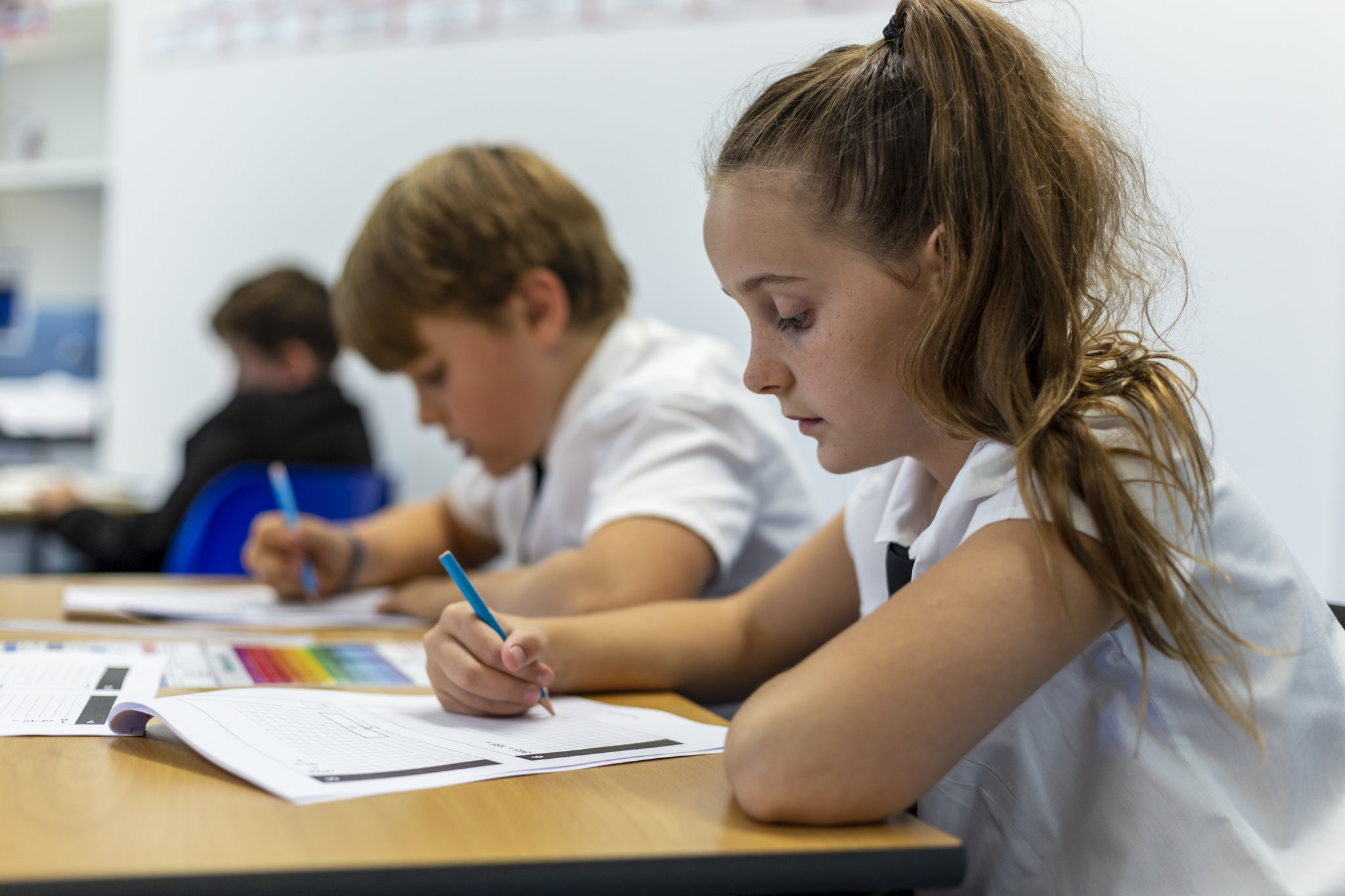
The term dates for 2023-24 are shown below. We have Inset Days on the following dates:
Monday 4th December 2023
Monday 18th March 2024
Friday 21st June 2024
Exam dates to be confirmed after the publication of the GCSE exam calendar.
Term Dates
Uniform Information
Students should take pride in their uniform and always look smart, including whilst walking to and from school. Shirts must be tucked in and ties properly in place. Parents who accept a place at Mayfield School agree that their children will follow the school uniform requirements.
Our standard, compulsory branded uniform comprises:
- Mayfield branded blazer;
- Mayfield branded tie (year R or House coloured);
- Mayfield branded PE top for PE (year R or House coloured).
Our standard, compulsory non-branded uniform comprises:
- Non branded black trousers (not leggings/jeans/jeggings/tracksuit bottoms);
- Non branded white short or long sleeved shirt;
- Non branded black or white socks;
- Non branded black or skin coloured tights;
- Non branded black, polishable shoes with no visible logos or metal tags;
- Non branded black shorts, leggings or jogging bottoms for PE;
- Non branded trainers or plimsoles suitable for outdoor and indoor PE.
Mayfield has a well-stocked pre-loved uniform shop on site which we encourage our school community to use. We operate on a “swap” or “donation” basis. If you would like to know more about this, please email [email protected] for further information regarding opening times and ways to donate any pre-loved uniform.
Mayfield School have their own pre-loved uniform shop, these items have been donated to the shop from Mayfield children that have outgrown their clothing. The shop is accessible from main reception Mondays and Wednesdays, between 15.30-16.30
Please bring cash or clothing swap.
New ties are available from reception through ScoPay.
Alternatively, compulsory, branded items are available from our school uniform suppliers Skoolkit: https://www.skoolkit.co.uk/ , Penelope Ann Schoolwear: https://www.pa-schoolwear.co.uk/ or Hargreaves: https://www.hargreavespromotions.co.uk/
Optional branded items, which if chosen to be worn, MUST be purchased from our pre-loved shop or one of our suppliers are:
- Mayfield branded black V-neck jumper;
- Mayfield branded black cardigan;
- Mayfield branded black drop pleat skirt;
- Mayfield branded blue and white striped summer dress available to wear for primary students;
- Mayfield branded black tailored summer shorts available to wear for all students;
- Mayfield branded PE tracksuit top for outdoor lessons (additional blue or black layers can be worn under PE tops in cold weather).
In addition, please note the following basic uniform standards:
- hair accessories or headwear of a religious nature must be black or Mayfield blue;
- extreme haircuts are forbidden - hair length should be at least a grade 2. This includes (but is not limited to) all over hairstyles, undercuts, tramlines and shapes being cut into hair;
- hair must be of a natural colour;
- make-up should be subtle and nail varnish of a pale or natural colour
- jewellery is limited to one pair of studs or sleepers (diameter no bigger than a little finger) in total. Only one earring is to be worn in the lobe of each ear;
- false nails and nose piercings are forbidden.
Stop Bullying
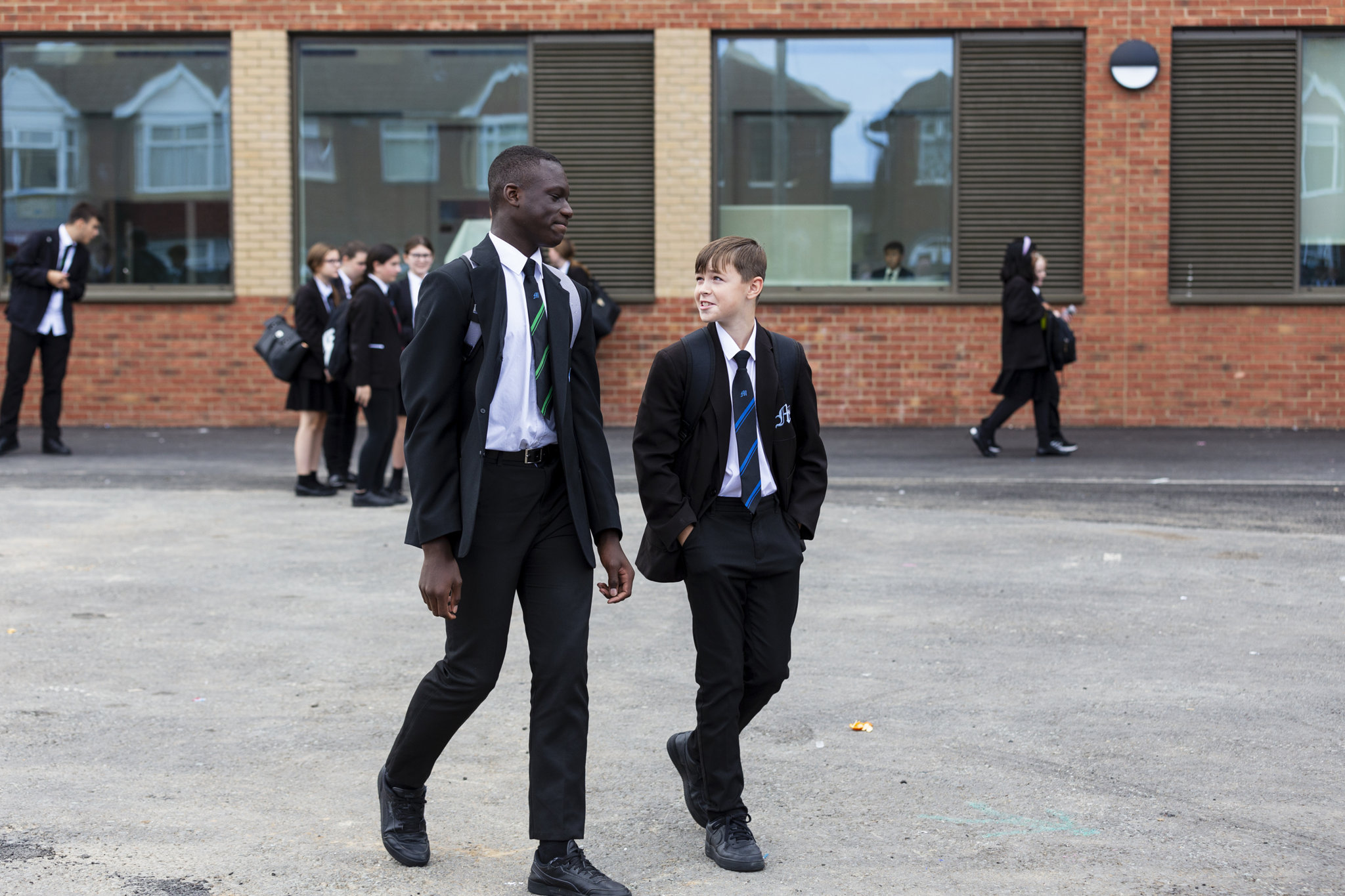
Mayfield School – Anti-bullying
At Mayfield School, all students have a right to learn and all teachers have a right to teach free from intimidation and fear. As a result, we will not condone or tolerate bullying of any kind. We pride ourselves on providing a safe and caring environment for all of our pupils to flourish – all members of the school community (teachers, pupils, support staff and governors) are given training on how to spot bullying and how to deal with it when it occurs.
Everyone has a responsibility in ensuring that bullying does not take place and that all reported incidents will always be taken seriously. Support will be provided for bullied pupils – they will be listened to and helped with positive strategies to help them cope. Appropriate sanctions and challenge will be put in place to help bullies change their behaviour.
For more details, please refer to our Anti-Bullying Policy - on the Policies tab here:
Reporting and tackling bullying
The government defines bullying as:
“Behaviour by an individual or group, usually repeated over time, that intentionally hurts another individual or group either physically or emotionally”
If you suspect that you (or someone you know) is the target of bullying then there are several steps you can take. Please read the relevant sections below.
Pupils
Where you suspect that bullying has taken place towards yourself or another pupil you should report it to any member of staff as soon as you can. You may, where appropriate, also offer the following actions:
- Step in to protect the pupil who is being bullied (unless it is unsafe to do so).
- Offer emotional support to the pupil being bullied – ask them if they are ok and if there is anything that can be done to support them.
- Encourage and support them to report the incident themselves to a parent or member of staff.
- Email [email protected] – any emails received here will be passed on to the relevant member of staff.
- https://www.thinkuknow.co.uk/ provides some good advice around cyberbullying – this should not be in place of reporting it to a parent or member of staff.
Parents
Be alert for any changes in your child’s behaviour as outlined in section 2 (page 5) of our Anti-Bullying Policy - on the Policies tab here. If you suspect that your child is the target of bullying then please reassure them and listen to their concerns. It is important to report the incident(s) to any member of staff (ideally your child’s form tutor or Head of House), even if your child doesn’t want you to – although these things sometimes ‘peter out’ by themselves this does not address the bully’s behaviour and prevent it happening again.
Under no circumstances should parents confront suspected bullies or their family members – this never calms a situation down and will often result in the bullying becoming worse for your child.
Cyberbullying
The misuse of technology and social media has become an increasingly common form of bullying.
Whilst the government have identified that the school have a responsibility to investigate and act upon reported incidents of bullying (including cyberbullying) it is important to note that we can only sanction pupils anywhere that they are “on school premises or under our ‘lawful control’ ”. This means that we cannot sanction pupils for any bullying whilst they are under the lawful responsibility of their parents. We can, however, work with the families of the affected pupils to ensure that sanctions are put into place by parents, to support the victim and ensure that they are safe at school and, where relevant, ensure that the relevant authorities are contacted.
Where you suspect that cyberbullying has taken place it is important to still inform your child’s house tutor (or in their absence their Head of House) as the bullying may also be taking place in other forms. We can inform you of the best actions to take and whether or not to report the incidents to the relevant authorities.
Advice for parents on cyberbullying is an extremely useful document for parents and provides good advice for how to deal with cyberbullying as well as links to other sites that can help you and your child if they are the target of cyberbullying.
For advice on how to report cyberbullying or abuse on social media please see here:
Facebook does not tolerate bullying and say they will remove bullying content when they become aware of it and may disable the account of anyone who bullies or attacks another. They have a set of community standards that they adhere to and it states that they will not tolerate:
- Pages that identify and shame private individuals,
- Images altered to degrade private individuals,
- Photos or videos of physical bullying posted to shame the victim,
- Sharing personal information to blackmail or harass people and
- Repeatedly targeting other people with unwanted friend requests or messages.
You can report bullying on Facebook using the report links which appear near the content itself, normally on a drop down arrow which gives you menu option to report the image, post or comment.
If you receive a tweet or reply that you don't like, you can unfollow that person. If they continue to contact you, you can block the user (just click on the head icon on their profile and select block user). You may find that as they are unable to get through to you, they will lose interest. However, if this is not the case and you continue to receive unwanted replies, abuse or threats, you can report it here straight to Twitter directly. If you know a friend or family member is being abused on Twitter, they have advice pages that can help with step by step help.
YouTube
You have every right to use YouTube without fear of being subjected to bullying or harassment. Bullying can be reported and action taken when things cross a line. To flag a video you think is inappropriate (click on the little flag bottom right of the video) and YouTube will take a look at it to see whether it breaks their terms of use. If it does then they will remove it. YouTube rules say you can't upload videos with hate content, nudity or graphic violence and if you find one on someone else's space, click on the video to flag it as inappropriate. If under comments, you are being bullied, harassed or threats are being made, they have a reporting tool page where you can report the bullying and they will investigate.
How to report bullying or abuse on messaging apps:
Bullying or abuse on Instagram can happen in many ways. It can be either negative comments, fake profiles or hacking of accounts. Instagram take all of these violations very seriously and have plenty of advice on their pages if you or someone you know is being bullied or abused on Instagram. Their advice initially is to block and unfollow the person who is being abusive. However, if it continues or it has gotten worse, you can use their in-app reporting tool. This page has details on how to report the abuse directly to them.
Snapchat
Snapchat is an app that allows users to send pictures to each other that disappear off screen within a set amount of time. Unfortunately, there is bullying on Snapchat in the form of screenshots, sending pics without permission, negative comments and more. If this is the case for you or someone you know they can block a user, tap the Menu icon, select “My Friends,” locate their name in the list and swipe right across their name. If you would like to delete a friend from your contacts, press “Delete.” Even if you haven’t added the user as a friend, their name will still appear in the “My Friends” list under “Recent” if they have sent you a message recently. If you receive an inappropriate photo or someone's harassing or bullying you, report it by filling out their online form.
WhatsApp Messenger lets people sends instant messages, videos, photos, and short audio messages to either one person or within a group chat. Messages can only be sent to other smartphone users who also have WhatsApp. Once you install the app, it checks your address book to see if anyone else you know is already using WhatsApp, and connects you automatically. You have to be over 16 to use WhatsApp legally. Bullying can take many forms as it is a messaging service and we often hear of abusive group chats. You can block and delete the contact. You can find out more by emailing them at [email protected].
At Mayfield, we seek to ensure that pupils are in school every day in order for them to make progress. Attending school regularly also helps to ensure that your child makes friends and participates fully in the social aspect of school.
We celebrate excellent attendance at school through positive points on ClassCharts, assemblies, certificates, and reward events throughout the year.
Every child has a target of 95% attendance for this year. It is statistically proven that children who attend school less than 95% of the school year make less progress than those who do. Click here for information about persistent absence and the impact of poor attendance at school.
If your child does not attend school, and we receive no contact from you, we will contact you by text or telephone and may visit your home.
For more information, please click here for our attendance policy.
Young Carers
What is a Young Carer?
- Young people under the age of 18;
- Providing care for/looking after a relative at home;
- The duties they take on and help they give is more than someone their age usually does;
- This may have an effect on their school or social life.
Who does a Young Carer look after?
- Mum and/or Dad;
- Or brother, sister or lots of siblings;
- A grandparent;
- Maybe even a neighbour.
Why may somebody be a Young Carer?
- Mental Health difficulties such as depression, bipolar;
- Physical Disabilities;
- Long-term illnesses such as cancer;
- Alcohol or drug issues and addictions;
- Acting as a translator.
Types of Care:
-
Physical - helping to wash or dress, helping to use a wheelchair;
-
Practical - cooking, cleaning, shopping, paying bills, getting brothers or sisters up and off to school;
-
Emotional – supporting family members emotionally – such as keeping the person they care for company, spending time with them.
How do I know?
- There is no one way a Young Carer may act or behave;
- It could be the person sat next to you;
- Or it could be you.
What if I don’t want to tell you?
- FEAR: Some may be scared they’ll let the family down or be taken into care;
- TRUTH: That’s not why I’ve got my role – it’s to provide a space for you to be yourself and leave behind any worries you’ve got;
- Caring for someone does not, in itself, put you in danger or at risk;
- It’s about making your caring role easier.
What is out there for Young Carers?
- Under 14s group - Saturdays in the John Pounds Centre;
- 14+ group - Monday nights in the Carers Centre;
- Annual Young Carers Festival;
- One to ones for more information.
How should I treat a Young Carer?
- Don’t use it against a Young Carer (not that you would);
- But on the same note, don’t go on and on if you do know – respect their privacy;
- Young Carers work really hard for their families - so try to be understanding.
Who can I talk to? If this sounds like you then you can speak to:
- Your Tutor;
- Your Head of House;
- Your contact at school: Mrs Michele John
|
Relational Practice Mayfield prides itself on building relationships between students, staff, and families. Mayfield is a restorative school which means that we try to take a restorative approach to resolve conflict both inside and outside of the classroom. Restorative approaches enable those who have been harmed to convey the impact of the harm to those responsible, and for those responsible to acknowledge this impact and take steps to put it right. Being restorative helps to support both pupils and staff and enables us to deal with incidents in a way that focuses on rebuilding relationships rather than punitive sanctions. Restorative meetings are voluntary and may take place between pupils and peers or pupils and staff. Any person taking part in the meeting is welcome to bring a trusted person with them from within the school community e.g. a friend, tutor, or Head of House. |
||
School Finance Information
The school has no employees with a salary of over £100,000.
| Salary band | Number of employees in this band |
| £100,000 to £110,000 | 0 |
| £110,000 plus | 0 |
The Consistent Financial Reporting for the 2022-2023 Financial Year can be found here.
There is further detail on the school's financial performance available on the DfE Schools Benchmarking website here.
History Of Mayfield
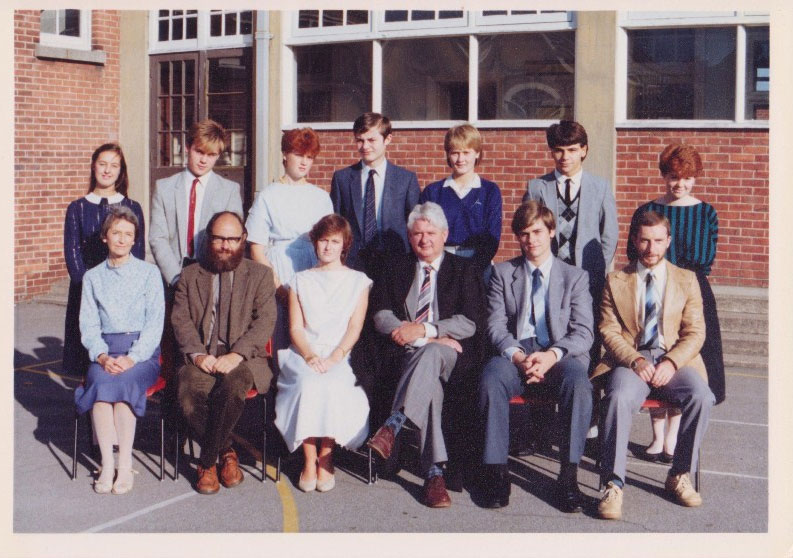
In 2012, Mayfield School celebrated its 80th birthday and in recognition of this remarkable event we are seeking information, stories, photographs etc. to showcase its history for all to see. If you can help us in any way please contact [email protected]
Introduction
For 16 years from the late 1980’s the pupils at Mayfield School undertook a project for their GCSE History in which they studied the history of their school [i]. During that time the history department and the pupils collected boxes of evidence including old photos, school magazines, reports and newspaper articles to help with their research. In 2000 we were invited by Portsmouth museum to contribute towards the Millennium project [ii], and further evidence was collected by a team of pupils who interviewed former pupils and people who worked in the school during the Second World War when the pupils were evacuated. In this history of the school I have used these resources and the coursework from three of these pupils as the starting point to compile my history of the school.
Stephen Sheehan, Mayfield School 1983 to 2012
Northern Secondary School 1932 to 1939
Northern Secondary school opened its doors to pupils in 1932. At that time secondary education was only available for those pupils who passed the entry exam. The rest went to elementary schools and the School leaving age for these was 14. The new school was open for Boys and Girls. Northern Secondary School for Boys was housed in the building opposite St Marys Church on Fratton Road that is now part of the Portsmouth Housing Association. Previously there was no Secondary School for Girls in the North of the City.
The building was divided into two schools, the western half for girls and the eastern half for boys. The only shared area was the assembly hall. The school provided places for 570 boys and 570 girls and at the time was seen as cutting edge with “every modern convenience.” It was officially opened by the Lord Mayor of Portsmouth, Alderman Ferdinand Foster on the 7th October 1932 but boys had been attending the school since the previous Easter. The official opening was filmed for Pathe News and was shown at local cinemas. The School cost £104,000 to build with a total cost of £125,000. In 1995 it cost the same amount to build the library in the East Quad.
One of the first pupils at the school was Leonard James Callaghan who after a short career as a Naval Officer during the Second World War entered politics and became the only politician in the 20th century to hold all four of the highest political offices Home Secretary, Foreign secretary, Chancellor of the Exchequer and finally Prime Minister. There is some dispute about whether he attended the Mayfield site. In the Mayfield Magazine of 1982 he said that he left whilst the school was based in Fratton. However a school friend of his who was interviewed during the Millennium project claimed that he was one of the boys who attended the Mayfield site for the last few weeks of the summer of 1932.
[i] Raymond Lee: GCSE Coursework, Kristy Clifford: GCSE Coursework
[ii] Michelle Bush, Jessica Dillon, Rachel Taws, Kelly Badger, Daniel Moore, Rachel Atkins: The Millennium Project 2000
Maps:
History-Of-Mayfield
Photo Gallery
The 1960s
The 1970s
.jpg)
.png)
